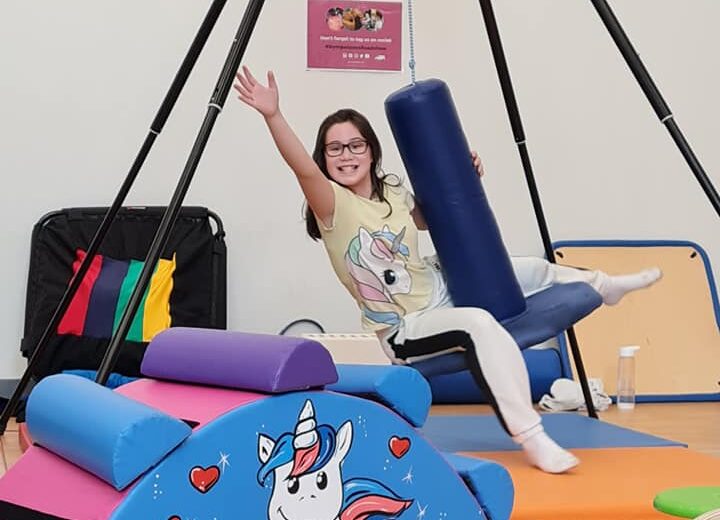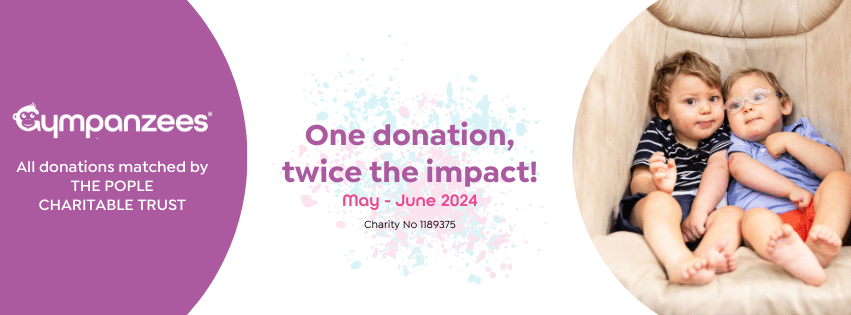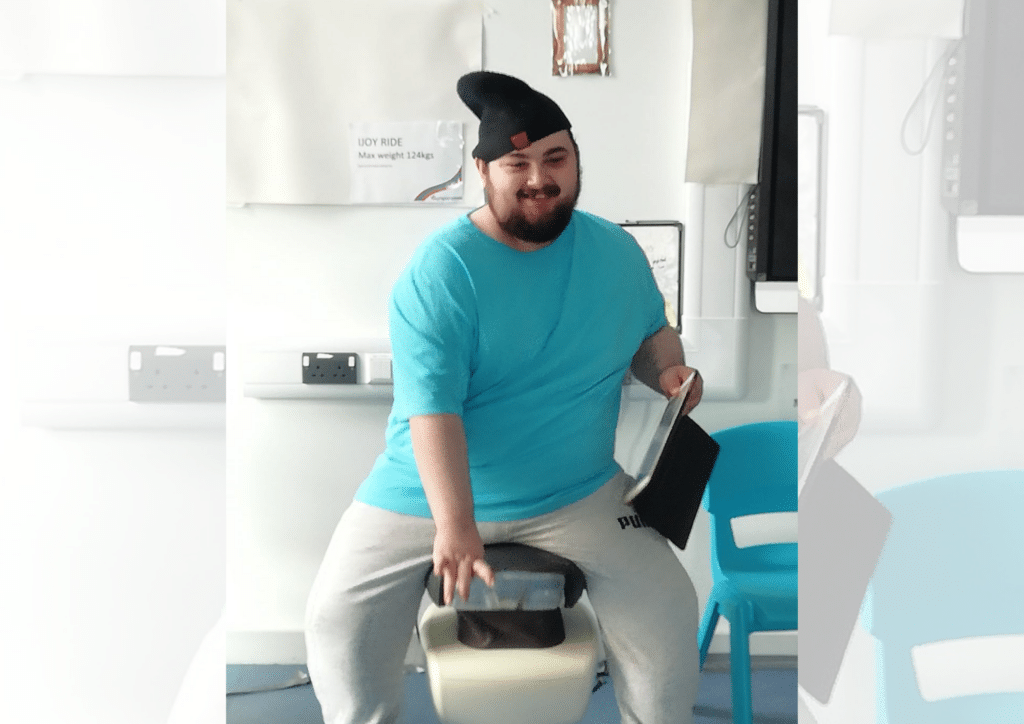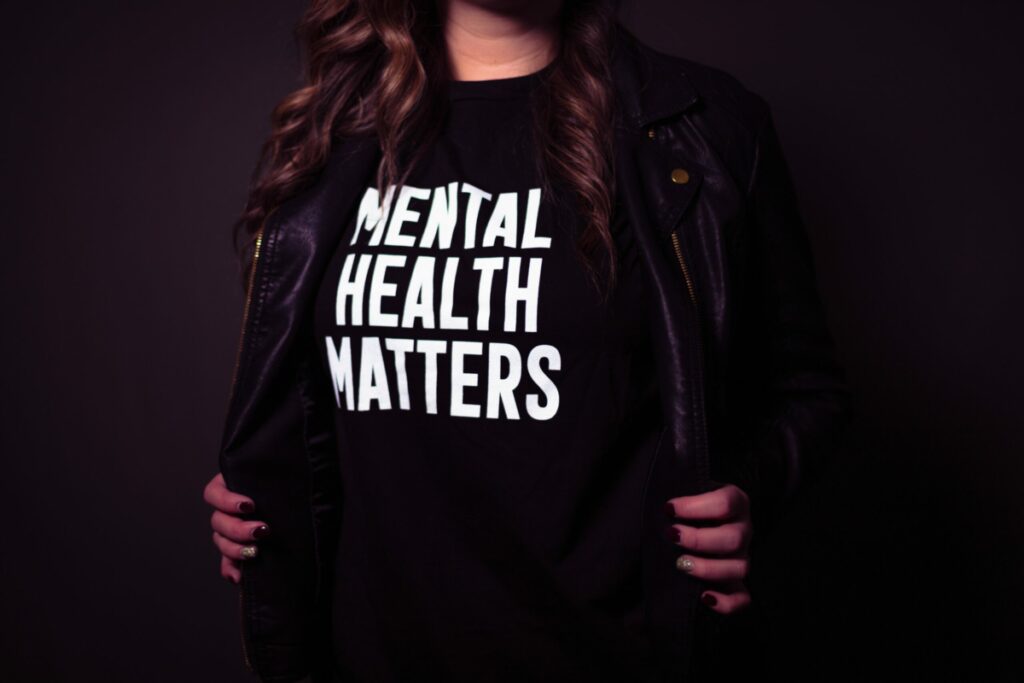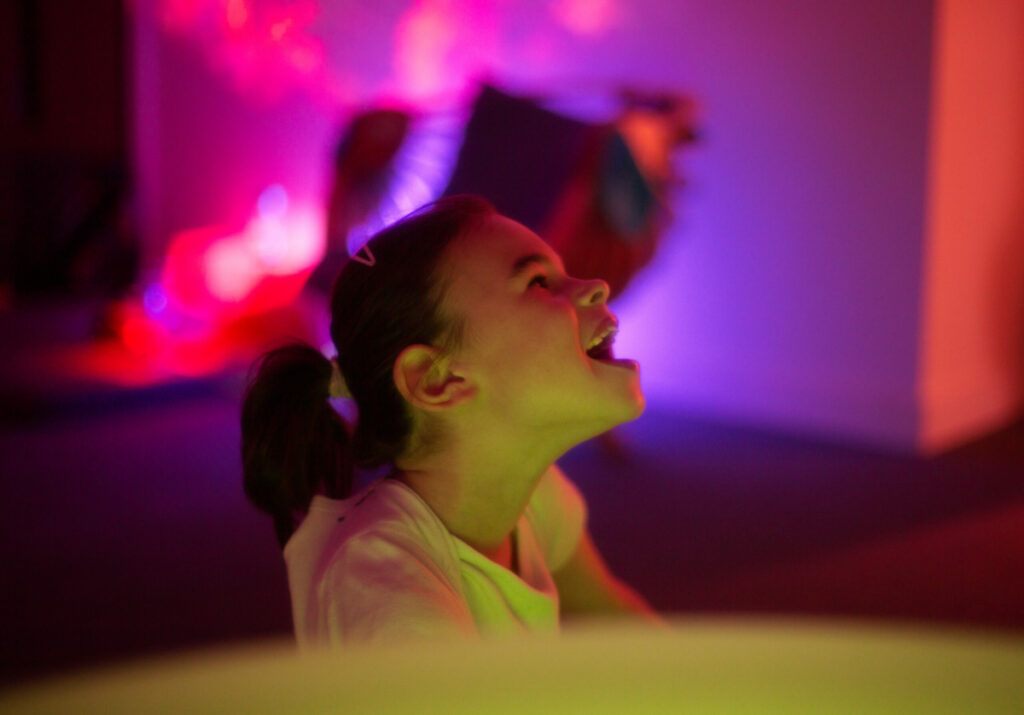Ahead of this year’s Epilepsy Awareness Week, we have asked Kirsty, a mum of two, to talk to us about her daughter S, and her visits to Gympanzees.
Tell us a little about S.
Kirsty: “S is a funny and energetic child who has faced many battles her entire life. She was severely starved of oxygen at birth, which left her with permanent brain damage to the cognitive and memory part of the brain. She has been diagnosed with mild cerebral palsy, epilepsy, autism, sensory difficulties and recently, deafblind. She is 14 years old, but has the mind of a 6-year-old. However, despite all these diagnoses, she is the funniest girl you could meet.”
What are some challenges you and S face daily due to epilepsy?
Kirsty: “S has epilepsy as a result of the brain damage she suffered at birth. She is on 2 lots of epilepsy medication to try to control her condition. However, she still suffers seizures despite being on medication. She has no symptoms to indicate she’s going to have a seizure, they just happen out of the blue. She has 2 types of seizures, tonic-clonic and focal seizures.
She suffers them day and night, so she uses a specialist pillow overnight to reduce the risk of SUDEP (Sudden Unexpected Death due to Epilepsy). With every tonic-clonic seizure she’s had, she’s had to be resuscitated, and once been put into a medically induced coma and sent to ICU to stop the seizure.”
How does it make you feel to see your child going through this?
Kirsty: “The easiest way to explain what it’s like having a child with epilepsy is ‘We live on a knifes edge’. We never know when the next seizure is coming, we don’t know if it’s going to result in being hospitalised, we don’t know if she’ll survive it.”
How has epilepsy impacted S’s ability to participate in physical activities and social events?
Kirsty: “S has to have 1:1 support at all times due to her likelihood of having a seizure, plus she has it due to her other disabilities. She carries emergency meds with her at all times, and anyone supporting her needs to be trained in how to recognise and deal with a seizure.
S needs extra watching if she’s climbing at a height and in the swimming pool. It’s extremely difficult to get her down from a height or out of a swimming pool when she’s having a seizure.
However, I don’t stop S participating in any activity because of her epilepsy. I feel she should live life to the fullest!”
How does Gympanzees support your daughter’s needs and help her engage in physical activities
despite her epilepsy?
Kirsty: “We love Gympanzees! I come with S and her little brother C, who also has additional needs.
It is the one place we can attend with no fear of judgement, S can just be herself!
I know the staff there are trained in dealing with all kinds of disabilities and medical needs, so I always feel safe knowing there’s people there who could help if S had a seizure.
They are always encouraging her to join in, she especially loves the Gym room, and the staff there always help her to use the equipment. I think she likes it when they help her because she’s got their full attention. At home it’s always a fight for my attention between her and C.”
What would it mean to you and your family to have Gympanzees open permanently?
Kirsty: “It would mean everything to us to have a place we can go to all year round!
Both my children love coming to the Pop Up, so to have a permanent place we could come to would be amazing. I find it extremely hard to find places to go to that is suitable for them both.
S is often judged and bullied when we go to ‘regular’ parks or other entertainment places. Despite it being 2024, the judgement we get is unbelievable. It’s also difficult to go to these places because she needs constant watching in case of a seizure, and C wants my constant attention. Gympanzees helps relieve all that pressure! ”
What would you say to the families that are hesitant to come to Gympanzees?
Kirsty: “I would say, ‘Give it a go!’ I know myself, it’s scary going to new places when you have children with additional needs. But when I do speak to other parents about Gympanzees, I always tell them it’s such a welcoming place, they’ll always find an activity their child will like, there are so many activities their children can try! And because you do different sessions for different needs, it means your child will be able to be in the safest and most appropriate session.”
Over 600,000 people in the UK have epilepsy.
Epilepsy is a common and serious neurological condition which affects the brain and nervous system. Seizures always start in the brain and are caused by many underlying causes, including a person’s genetics, a structural change in the brain or from other underlying conditions.
There are over 40 different types of seizure, and not all of them are physical, which is why epilepsy can also be an invisible condition.


